Chien-Wei Liao and Kam-Wei Liao moved to Beachwood in 1957. They were the first people of Chinese descent to live in town.
Their sons Wayne and Winston were the only Chinese Americans in the Beachwood schools in the 1960s and 70s, and they may have been the first Asian Americans.
Our community has changed drastically since then. The percentage of Asian students in the Beachwood schools has risen to 19.8%, according to 2023 data published in US News & World Report.
Although Kam passed away in 2019 and Chien in 2022, their sons Wayne (72) and Winston (74) remember their legacy.
In 2007, the Liaos established the first STEM scholarship through the Beachwood Schools Foundation, which was most recently awarded to class 2023 graduate Kai Zheng.
Every year that they could, Kam-Wei and Chien-Wei attended the BHS senior awards assembly, where they would deliver a speech honoring the Liao scholarship recipient. Their speeches were warm, humorous and inspiring.
“I met the parents 15 to 16 years ago when I was the assistant principal,” BHS Principal Paul Chase said. “They were very kind, energetic and really wanted to give back to the school. Kam and Chien had a very strong sense of humor every time they presented at the senior awards.”
Chien and Kam Liao were also featured in a 2015 cover story in Beachwood Buzz Magazine. The article describes how the couple lost everything during the Japanese invasion of China during World War II, and how they rebuilt their lives in Beachwood after graduating from a missionary university in China.
Chien told the Beachwood Buzz that he learned an important life lesson from his emigration.
“Money is not that important, but principles are,” he said.
Overcoming hurdles in language, Chien and Kam were both accomplished scientists. Kam designed steel mills that could withstand enormous physical stress. Later in her career, she was involved in the development of computer science at IBM and programmed aircraft simulators for the U. S. Defense Department.
Meanwhile, Chien earned over two dozen patents as a development chemist at Standard Oil.
The couple emphasized the importance of education, starting their sons with piano lessons at age eight and passionately encouraging future students to pursue college at the graduate level.
“Our legacy is about taking care of the younger generations and helping people,” Chien told the Beachwood Buzz.
The Beachcomber interviewed Wayne and Winston Liao in November.
The interview will be published in three chapters, focusing on the early years of the Liao family in Beachwood, the experience of the brothers as BHS students and finally sharing the Liao brothers’ advice for Beachwood students.
Chapter One—Mr. and Mrs. Liao
Allen: When did your family settle in Beachwood?
Winston: We can go back a little bit further about our family. Our dad came to the United States in 1947, around a month or so before mom.
Wayne: I guess it was thanks to the sponsorship of the US Navy. He was invited to study chemistry at the graduate school of the University of North Dakota. He completed his Master’s degree in North Dakota. After that, he was invited to the Chemistry department at Wayne University in Detroit to pursue his Ph.D. He had been a chemist in China. My mother, who came to the United States on a student spouse visa, joined my dad in Detroit. I was born in Wayne County in Detroit, and that’s how I got my name. My mom saw ‘Wayne County’ at the top of the birth certificate application. She asked, ‘Is Wayne a good name?’ and the doctor and nurses confirmed that it was. After he finished his Ph.D. studies, he was hired by Standard Oil of Ohio in Cleveland, which is now called BP. There were many Standard Oil companies back in those days, so they distinguished them by using state names.
Winston: John. D. Rockefeller was the founder (of Standard Oil), so there’s a lot of history associated with that oil company in Cleveland and Ohio. Our father was a big part of it in the fifties and sixties.
Wayne: They initially lived near the Cleveland Art Museum in the University Circle area, close to the Ohio Lab located on Murray Hill—in the Little Italy neighborhood. The lab later relocated to Warrensville Center Road, where I believe Sherwin Williams now owns the property. It was around that time they moved to Beachwood, and that’s how we ended up here in 1957.
Winston: Ten years after our dad first arrived, and eight years after our mom, who came in late 1948, I was still in China. At that time, we had relatives, including our grandmother and my father’s older sister, in Guangzhou, China. I didn’t come to the United States until I was almost eight years old, in 1957, after our parents became citizens in 1955. Standard Oil of Ohio had connections with politicians, and there was a quota on the number of Chinese people who could come to the United States each year. Citizenship enabled our parents to benefit from efforts made on their behalf through Sohio. It was only then that I met my parents and Wayne for the first time. The oddity is that both of us thought we were the only child. He (Winston) was the only child until he met me, and I was an only child, or so I thought. I didn’t really appreciate that I had an older brother, so it’s a rather unusual situation. But that’s another story. I sent you our mother’s and our father’s obituaries on the Legacy.com website. Many things are covered in their obituaries. However, one of the key points we’d like to share with you is that we were one of the first minority families in Beachwood. Our parents lived in the same house for 65 years. We are an integral part of the larger society, with friends of all colors, nationalities and religions. In that sense, we don’t feel any different, and we consider ourselves just a part of the world at large.
Allen: So, your family was the first Chinese community in Beachwood, right?
Winston: Yes, all four of us were the entire Chinese community in Beachwood. We’re very proud that, after a while, we were part of the community. Our parents did very well, and they gave back to the community. We were very involved in the community, not just school-related activities.
Allen: I’ve heard that your mother worked in a field that was mainly male dominated. Can you describe the challenges she may have faced, or was she accepted?
Wayne: Our mom was the only one in the family with real brainpower. She was the smartest one. She had the ability to figure things out. She came onto the scene at the right time because the engineering department where she originally worked had draftsmen. In those days, there was no CAD; they used rulers and pencils (Winston: done by hand). This engineering firm designed industrial plants in the late fifties and early sixties. They purchased a computer that took up a room.
Winston: It was 64k, the size of this room.
Wayne: IBM 1460 was a supercomputer. In those days, there was no such thing as a software developer, but they knew that she had the mathematical ability and training in architectural engineering. She became one of the first professional programmers, and she continued that career throughout her working life.
She truly embodied what many people would call a feminist. She got to do what she wanted, raised a family, and had the initiative to accomplish all that. That’s why we’re so proud of her. She had a lot of guts. When she was in China with her classmates and the Japanese were occupying close to where they stayed, she and her friends one night got a chicken (Wayne: they bought the chicken). I thought they stole it, but they smuggled the chicken in a bag through the checkpoint, so she was brave enough to do that.
Wayne: You could probably find people who knew her at the Happy Hookers knitting group. They meet on Monday morning at the community center.
Allen: From what I’ve gathered from this conversation, she seems to have been a talented person in general, quick to pick up many skills.
Winston: Towards the end of her life, she did a lot of volunteer work, knitting with a group in Beachwood. They were called the Happy Hookers, and they donated what they created, including sweaters, scarves, and hats, to people in need. She also worked with the local Diabetes Association, assisting with whatever they needed. She remained very active even after retiring from her programming work. She was an exceptional woman who lived a long and fulfilling life, reaching the age of 96.
Allen: I’d like to learn more about your dad. What were his hobbies or interests?
Wayne: The significant one for both him and mom would be [attending] musical performances.
Winston: When they traveled, they always sought out opera houses, which are very prominent in Europe. They would go to different opera houses, even if it meant standing room only. The Metropolitan Opera used to come to Cleveland for an entire week, and there were times when they would stay downtown. I heard that on one occasion, they stayed overnight because they wanted to catch all the performances. It was different from just going back to their house. Wayne was able to arrange meetings with some of the more famous singers.
Wayne: Plácido Domingo [Spanish opera singer and festival administrator] and [Luciano] Pavarotti [Italian opera star with an incomparable voice].
Winston: They really admired these singers.
Wayne: We had a contractor whose mother worked at the Metropolitan Opera. When she found out that we love opera, she said she always hosted a party after the full-dress rehearsal, and invited our parents to meet the cast, so they did. The other time, a friend organized a fundraiser featuring Luciano Pavarotti, and of course he called me for the most expensive tickets. I said yes, on the condition that my parents sit near him.
Allen: What were some other hobbies that your parents shared?
Winston: Our parents loved gardening and working in the yard. Every summer, they always had fresh flowers on the table from their yard. Our family, including our children and grandchildren, shares this love for gardening. Have you ever seen the movie ‘Crazy Rich Asians’? Do you remember the cactus that took up the whole room? It’s actually a night-blooming cereus. Especially in August, it starts opening around 8:00 PM and fully opens at midnight. By the next morning, it’s gone. Our parents had one of those plants back in the sixties. I still have an offspring from that plant, which I’ve shared with family and friends. We also continue to attend concerts and support the Cleveland Orchestra.
Chapter Two—The Liao Brothers Experience in Beachwood Schools
Allen: Did you both attend Beachwood schools together?
Winston: We’re two years apart, so, we went through grade school together, and at that time it was called junior high.
Winston: I can give you an example about how we were accepted, at least by the school and the students. I was the vice president of the school’s student council. I didn’t spend much time at school in my senior year because I was able to study chemistry at John Carroll University. We had a special group of twelve students who ate lunch together because we didn’t fit into the regular school schedule. But our classmates respected us and elected us to various positions.
Wayne: I was the vice president of the junior class.
Winston: So, that gives you a sense of how things were in our days in the sixties. We were accepted as part of the community, not because we were Chinese or not, but because we were one of them. I think that’s an important thing to remember. The Chinese part was something nobody really noticed. One time I had a date, and we went to a movie theater. I left the key in the car. A couple noticed who I was. He said, “You’re Winston, aren’t you?” Apparently, he was the parent of another student. He took me back home, and I got another key. Then he drove me back to the car at the movie theater. It gives you a sense of the community at that time. People recognized us as who we were, not because we were different.
Allen: The student council system, you’d think it changed a lot over the years, but it sounds like a very similar system compared to today’s.
Wayne: I really don’t remember what our student council did. All I remember was that the junior class was responsible for putting on the junior class carnival, and I believe the business of the senior class was to stage the prom. They obviously had meetings, and the President of the student body would speak at the weekly assembly. They would basically have to prepare a speech for the prep rally for either the football or basketball game that weekend; that’s all I remember.
Winston: I don’t remember anything significant in terms of bettering the system or infrastructure of the school. I don’t know what they do now in terms of student government. I do know that we did interact with the faculty somewhat, but nothing major stood out. There weren’t many conflicts back then, and the society was very different compared to today’s. There was a lot more respect, and people just tried to get along with each other.
Allen: Winston, what was your favorite extracurricular activity?
Winston: I would say sports because it was something I had to work for. Our parents never really approved of it because the first thing was good grades, then practicing the piano and daily chores. Every morning, our father had a list of things we had to do around the house, like cutting the grass. Sports, to me, were a form of accomplishment because we never had formal lessons in any kind of sports. We were both on the tennis team and the track team. He played freshman basketball, and I made JV basketball. We never had a basketball at our house, so everything we learned, we learned on our own and practiced on our own. To me, that was a favorite thing to do because I was able to fit it into my schedule. I finally convinced our parents by saying, ‘We’ve been doing all these things. We practice the piano at least twice a day, maybe three times. We do the dishes, make our own lunches, and help you cook. So let us do something that we enjoy. And, by the way, it’s important when we apply to colleges.
Wayne: I don’t think that was part of my application, but I found out I got accepted to Oberlin from the tennis coach.
Allen: Wayne, did you enjoy these sports as much as your brother?
Wayne: He’s a far better basketball and tennis player than I was, but I was a better pole vaulter than him. I taught myself how to do it.
Winston: We made a pole vaulter out of bamboo. We dug a pit, put the pole in it, and practiced in the backyard. We didn’t even have a mattress.
Winston: Nowadays, it’s so easy to go to Dick’s Sporting Goods to buy things. It’s so easy to ask mommy and daddy to get someone to teach you. Back then we didn’t have these things, so we had to come along.
Allen: Were there things that were popular back then, such as hairstyles and clothing? What was big fashion at the time?
Winston: Our mother was an expert seamstress, and she taught herself how to sew. She would make us sports jackets. But our father was very particular about the classic, Ivy League look: button-down collars, loafers, tweeds, herringbone patterns. For the longest time, we were not even allowed to wear jeans because at that time, the only kids who wore jeans outside of school were what they called juvenile delinquents and young gangs. It wasn’t anywhere close to what gangs are now. Things are crazy now, but we went through a period.
Allen: What are your personal interests?
Winston: I’ve been retired for almost ten years. One of the things my wife and I do, occasionally with our children, is travel. One of my most memorable trips is when just the two of us went to Japan without our families.
Wayne: Hiking Mountain Fuji at night under the full moon, and we got up there at sunrise.
Winston: The path was not lit, and it was lit by the moonlight. And there were people from babies all the way to people in their eighties and nineties.
Wayne: Again, [the joy was] not just about hiking Mount Fuji to brag about it, but getting to share your journey with others. What do you see? What do you learn about it?
Allen: One of my mom’s interests is learning about British history and culture.
Wayne: Has she been to the War Rooms? Highly recommended. You can see where Churchill slept during the war. It’s a very thoughtful way to understand that period of stress on the Western world. My favorite way to be exposed to British history is going to the National Portrait Gallery and British museum.
Winston: I’ve been to all 50 states. My wife and I are going back to Norway next year, the place we’ve visited before and enjoyed. Learning about the Vikings people who live in Scandinavia, why are they so inventive? Why are they so environmentally conscious? What role did they play in World War II? And especially the railroad in Norway where the Russians took over during World War II and they had ammunition factories in northern Norway and used that railroad. We learned so much, and the people there are just very friendly, and the food was wonderful. We learned that Vikings were in North America way before Columbus. There is also a book about the Chinese who were [in America] ahead of Columbus.
Winston: The Chinese made their way westward through Southeast Asia, the Indian Ocean. In Madagascar, there’s a significant Chinese population. They traveled around the tip of Africa and continued on to North America. So, Columbus Day should not be Columbus Day.
Allen: We’re also discussing Columbus Day in Spanish class and in Spanish cultures, they call it the Day of the Race to celebrate cultural diversity and how everyone is a part of this community.
Allen: Do you play chess by any chance?
Winston: I was a graduate school champ. Do you remember Bobby Fisher when he was big? I read his games. I love chess, but I prefer sports as I am a very active person.
Allen: Did either of you play any instruments at any point?
Wayne: I had a failed attempt at taking piano lessons. It took a couple years to win the point, and finally, Mom and Dad agreed. In the meantime, I taught myself to play the electric guitar.
Winston: Music was important to our parents because they grew up with it. So, one of the first things they did was to have a piano. I was still in Hong Kong when I was six and seven, living with an uncle. He took me from Kowloon to Hong Kong Island for piano lessons, which involved a 2-hour journey each way, including bus and ferry rides. I was able to continue after moving to this country because they had a piano in the house.
Winston: As you get older, there are certain obstacles. I wear progressive lenses, and to look at the music, I must sit about three feet above the piano to look down at the music. But our two youngest grandchildren are taking piano lessons, and they are going to continue the family legacy of music.
Chapter Three—Advice to Beachwood High School Students
Winston: What are your goals after high school?
Allen: I plan to go to college, and I want to pursue the programming field and help solve environmental problems from a mathematics and computational perspective.
Winston: So, are you doing a lot of coding now?
Allen: I’m making group projects at computer science club hackathons, and I’m also taking the school computer science course above AP level. I wonder how I should craft an application to best highlight my perspective.
Wayne: Let me just suggest something. Find somebody with a problem at hand, whether it’s a lawn service or whatever, and help them solve their problem. Or just go down to the principal’s office and see what needs to be automated.
Winston: The application is always going to be needed for a multitude of things.
Allen: What did preparing for college look like back then?
Wayne: I had friends who went to college out of eleventh grade. I tried to do the same thing but it didn’t happen.
Allen: For our system, the deadline for regular decision [at many schools] is early January of the senior year.
Wayne: Well, that’s what I ended up doing, after I got rejected by trying to apply in my junior year. I did so in October my senior year and I ended up accepted. After my acceptances, my high school years were basically done [after being accepted to college] and my career path kicked off.
Winston: But still, you must work hard to get to that point. Even in the sixties [we had to] demonstrate [that we were well-rounded], not just grades and test scores and sports. Extracurricular activities, music, STEM, etc. all that helps. We did the same thing. The learning process continues, and it doesn’t end with getting into college or graduating from college. Learning is a lifetime process; you never stop learning. Our parents encouraged lifetime learning. When we were growing up, we read a lot of books, and that made a big difference… doing it on your own [instead of as a school] assignment.
Allen: I don’t usually prefer reading for school but like to simply browse articles and journals on current and historical events. I like to read nonfiction books with a lot of numbers in them, like those with a deep dive in statistics that can teach me the patterns of life.
Wayne: I got one for you. The author is S-I-M-I-L and the name of the book is How the World Really Works. It Is full of information. It gives you the data and what makes the world operate. In the introduction it explains “energy is what the economy turns into goods and services” and essentially explains the relationships of these everyday substances. And what their contribution is to each other and what results when you use all these things together.
Wayne: [In the context of piano or other extracurricular activities,] I tend to talk over myself, but the only way to improve is by making mistakes because without them, you can’t truly understand how to do things correctly. My mother used to say, “Wayne, if you don’t put in the time and effort to get it right the first time, then you are going to spend the time and effort to fix all your mistakes later.”
Allen: Just keep that consistency…
Wayne: Consistency is a result of your work habits, and what you can control is your work habit. I always knew that people who were trying to undermine me had more resources and more personnel. My team and I would always say, ‘But nobody can outwork us. We don’t believe we can be outworked.'”
Winston: I’d like to wrap things up by focusing on our parents. These were two unique individuals, and they never felt like they were so different from the rest of the community. They found ways to fit in without drawing attention to their color or their nationality, and I think that’s one thing that has stuck with us.
It doesn’t matter who you are; you don’t even need to use the word ‘diversity’ because a ‘community’ is a group of people who share similar interests and participate together. That’s an important thing that they’ve passed along to us.
And so, that’s what we’re trying to do. We run into people, and you just respect who they are for what they are regardless.
You don’t have to stick together because you’re the same color. Whether you are red or green or blue, it doesn’t matter. I still remember our father telling us, “Try everything at least once, then you know what it’s like.’ As Wayne pointed out, sometimes you’re going to have to make a mistake, but you learn from that.

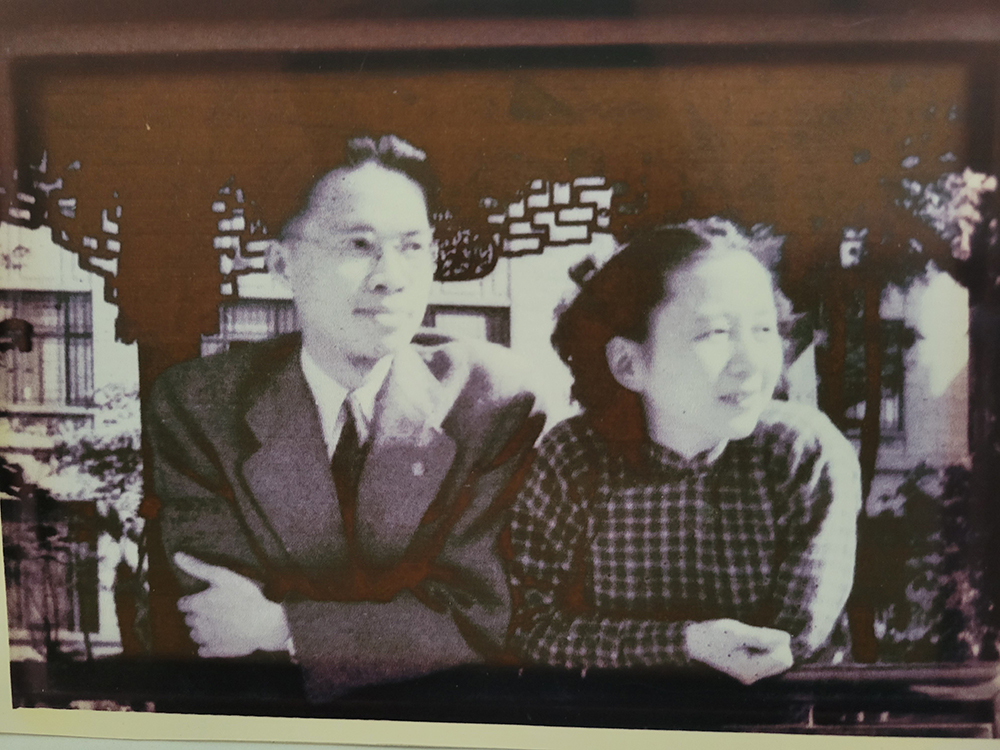
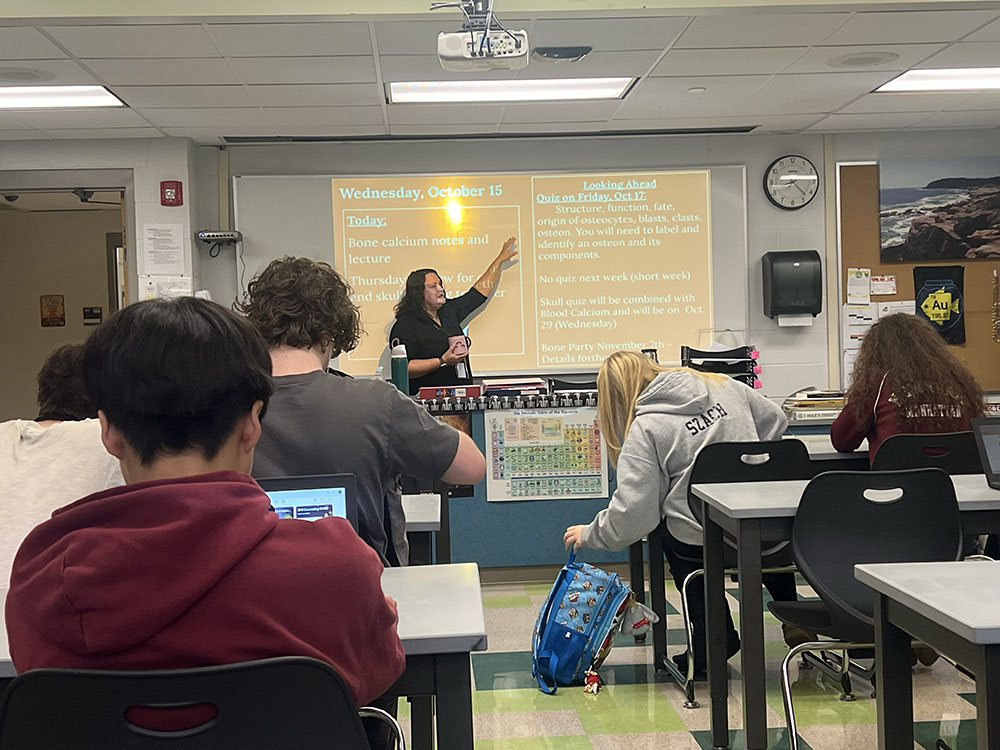
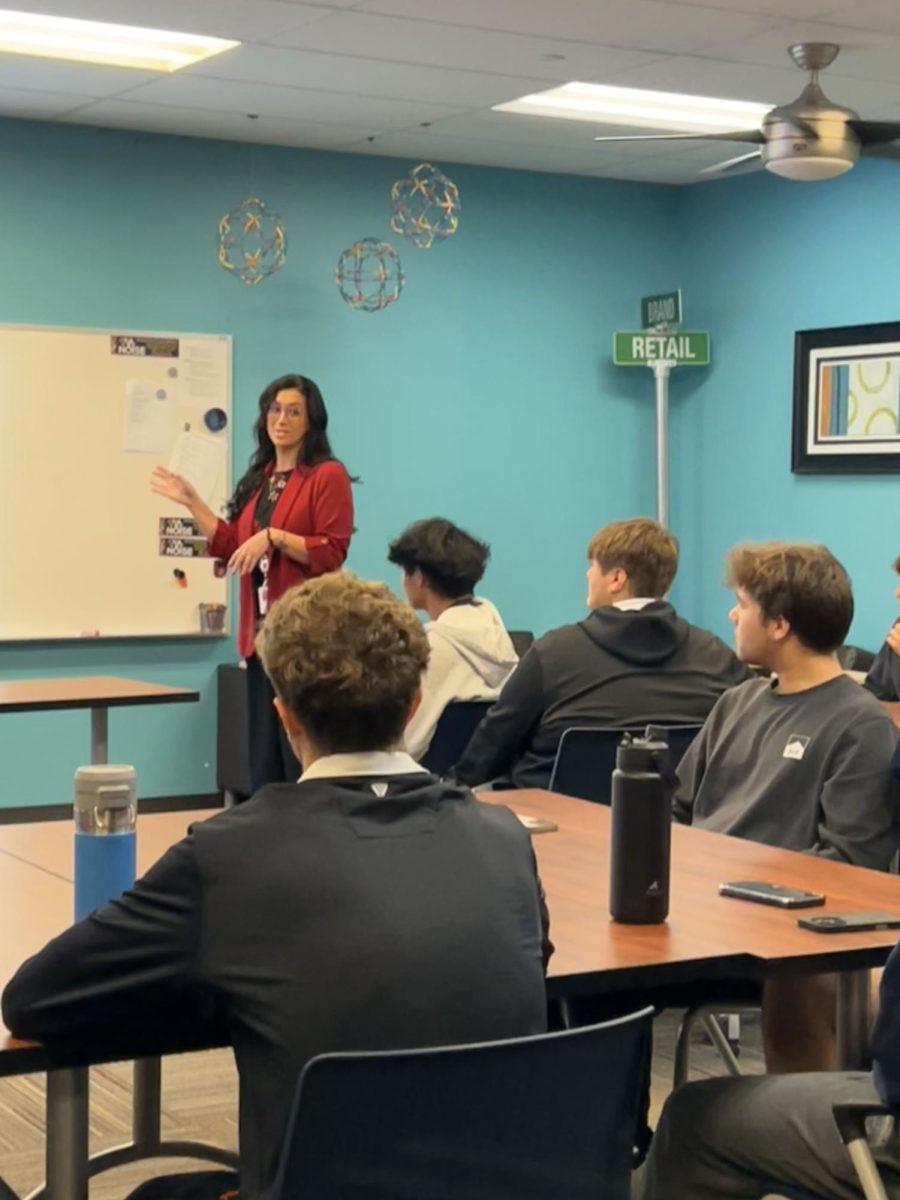

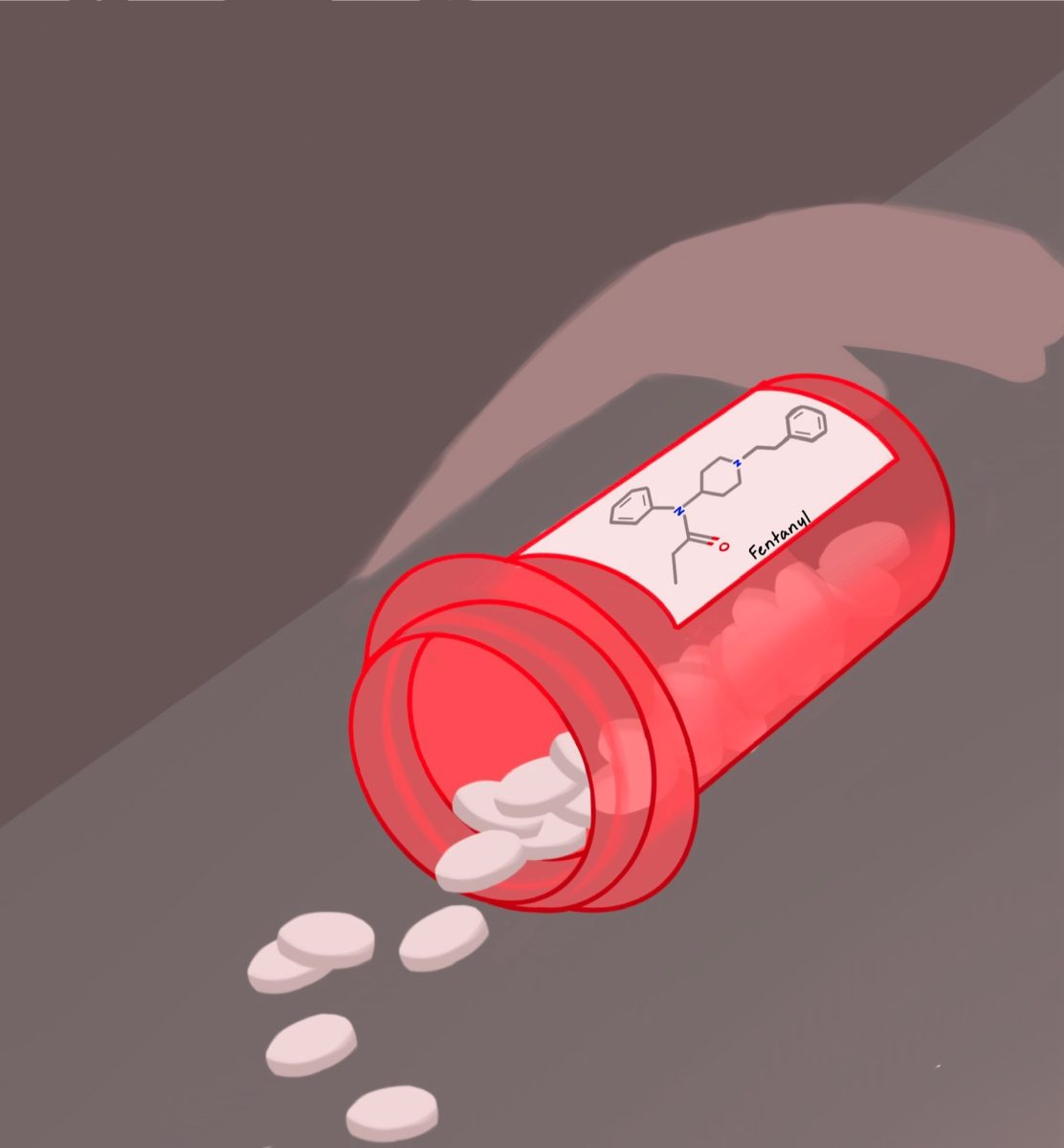
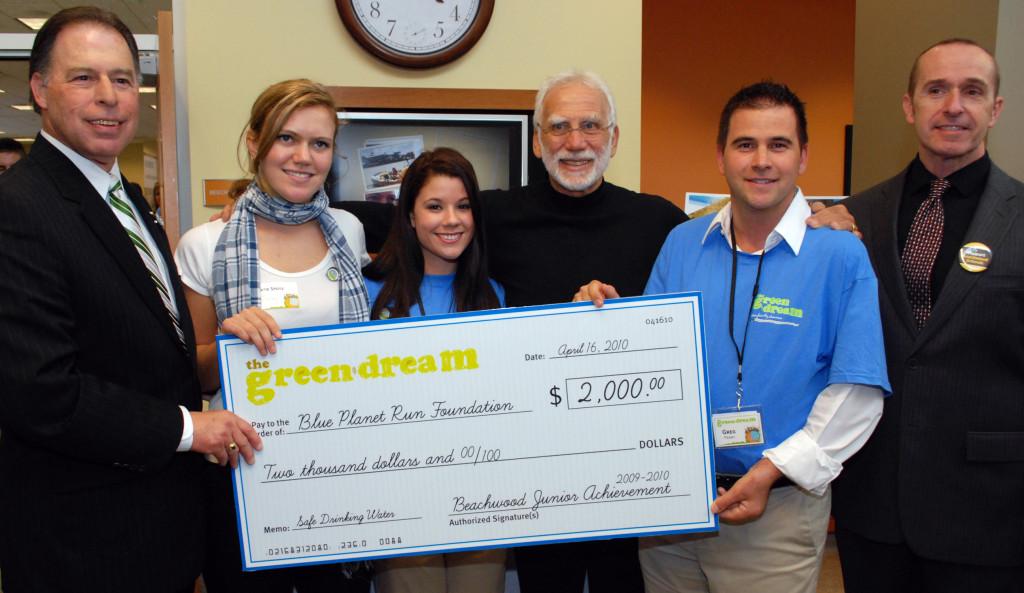
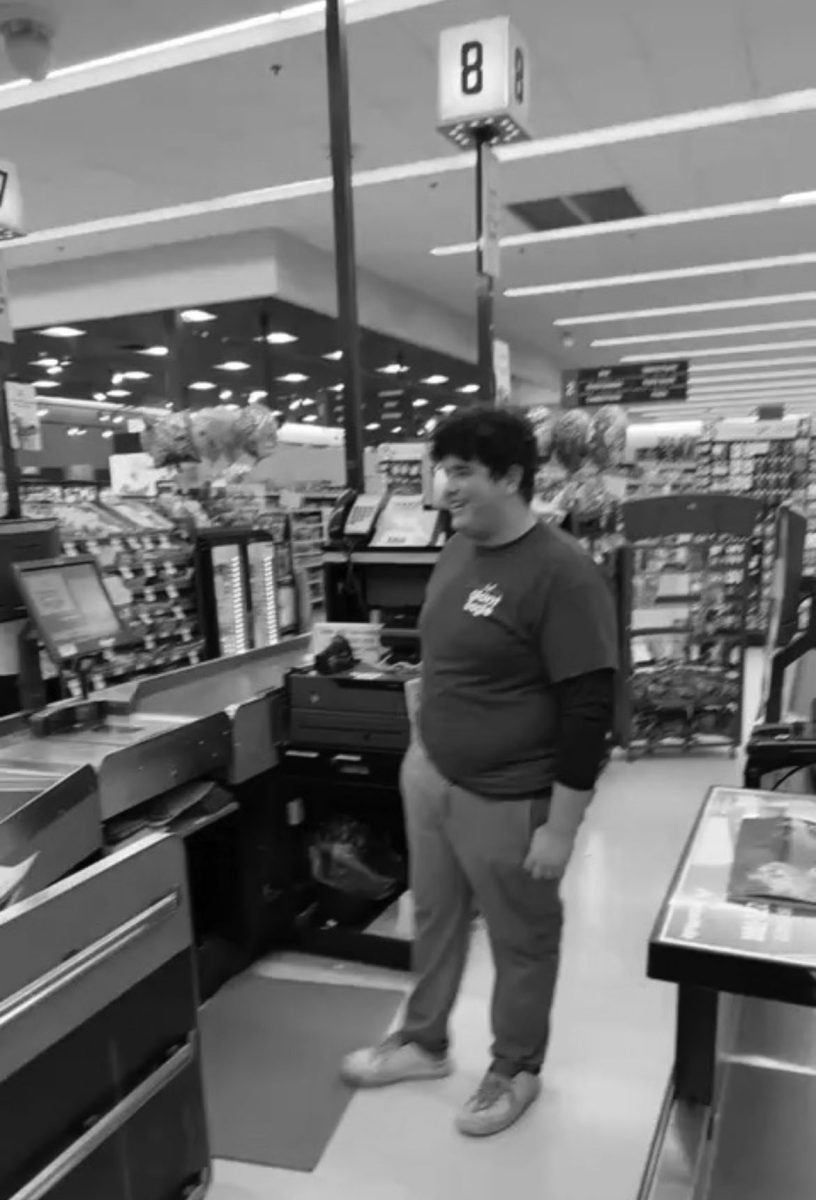

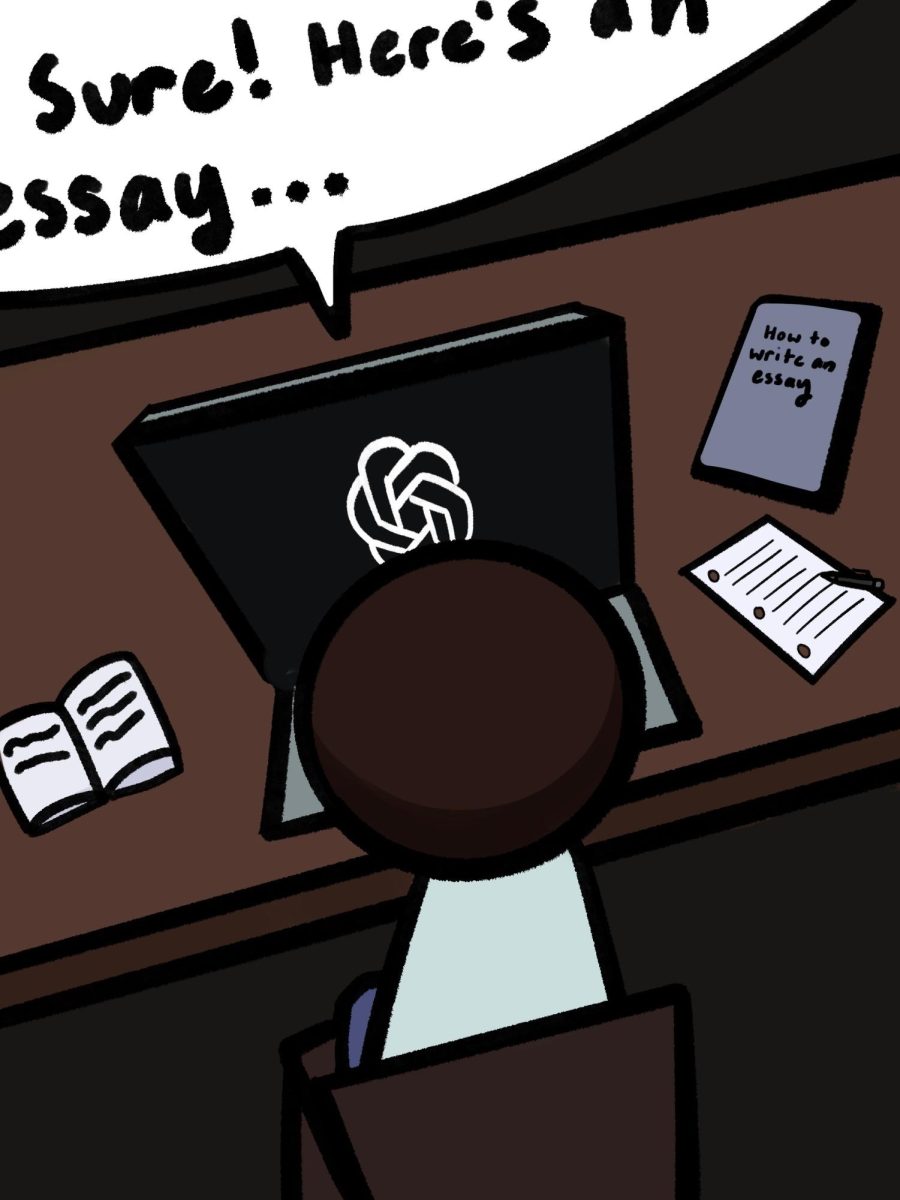
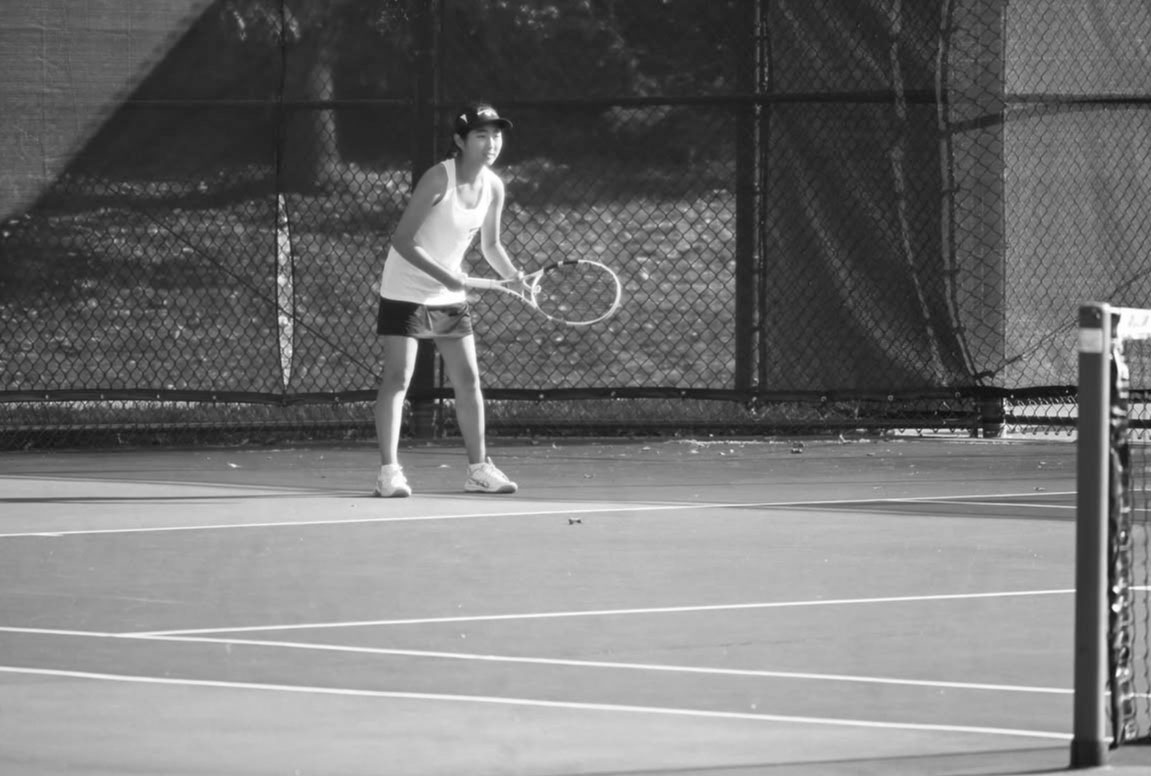

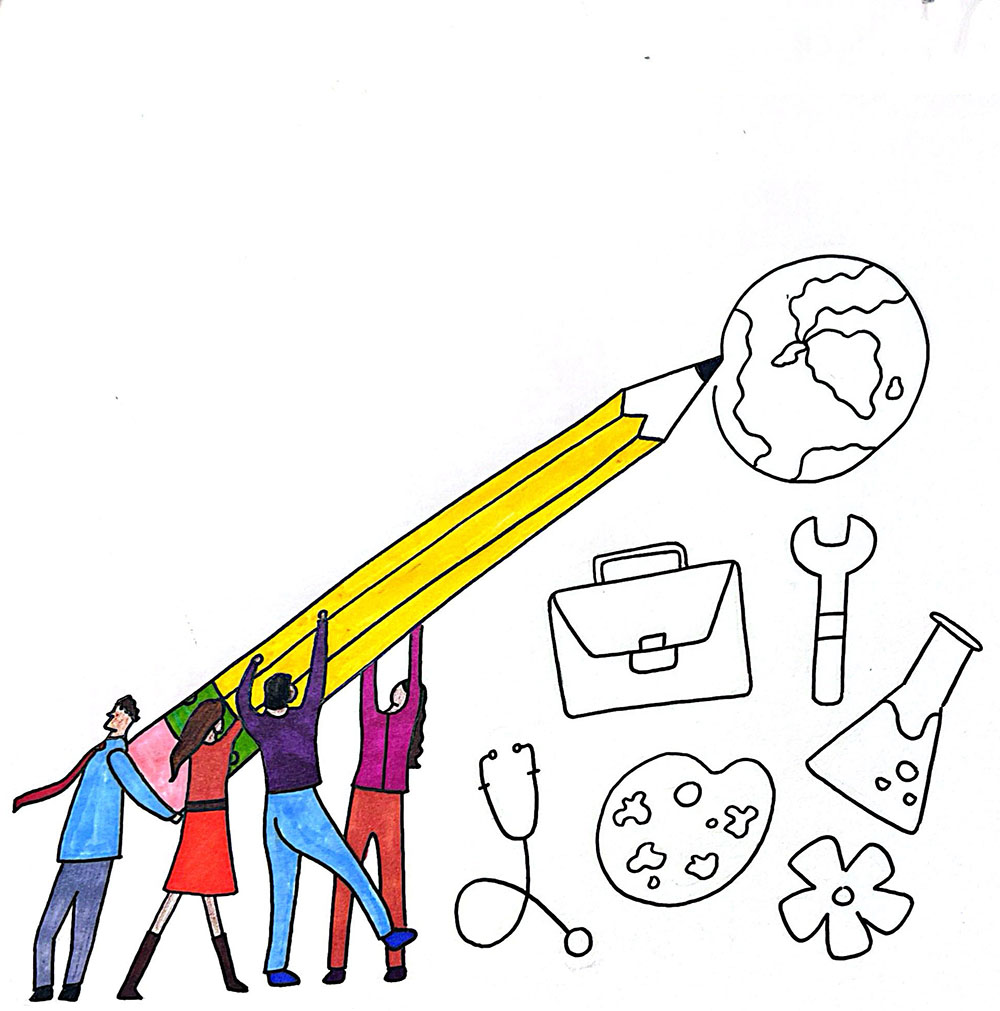
![“My parents have always said that education is important. My parents are Chinese immigrants, I'm Chinese American, [and that's a] value that has always been ingrained in our community,” said Senior Lyndia Zheng, pictured with Tony Zheng](https://bcomber.org/wp-content/uploads/2025/10/DSC_4244.jpg)